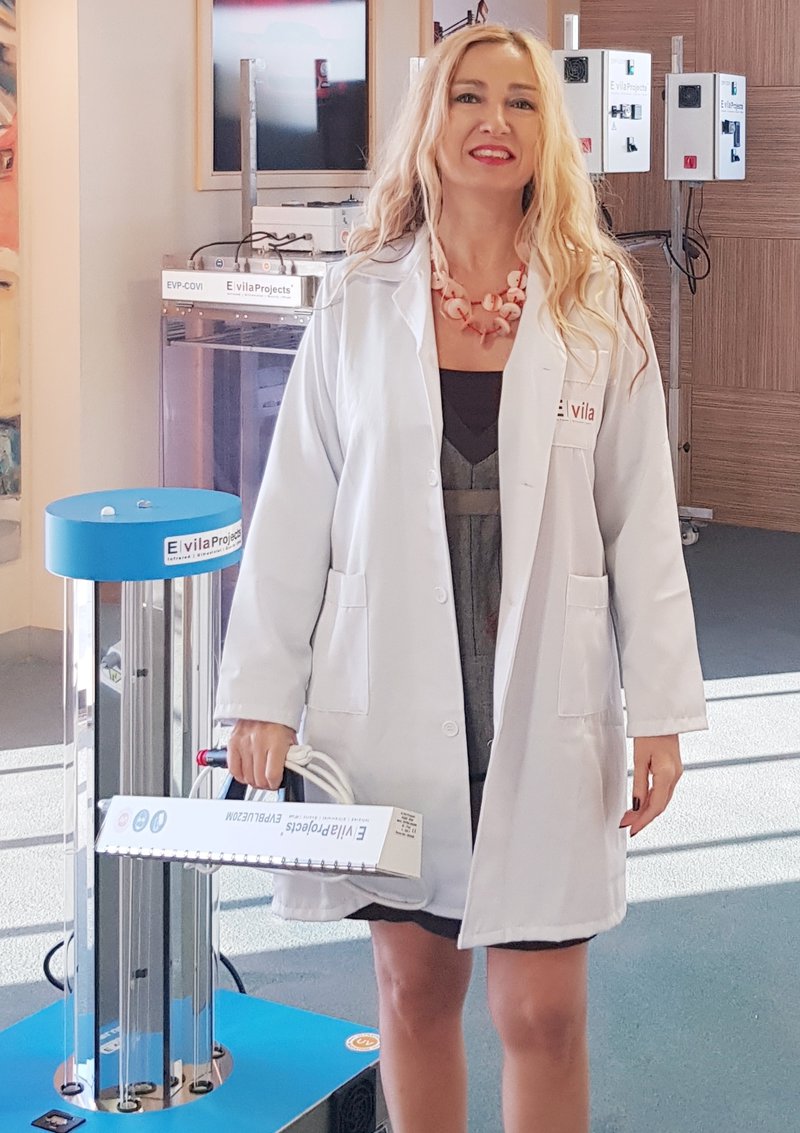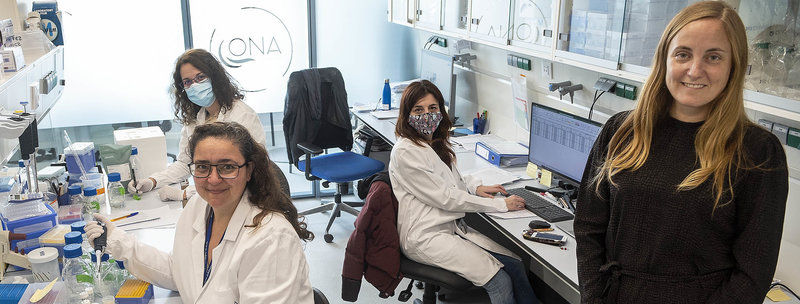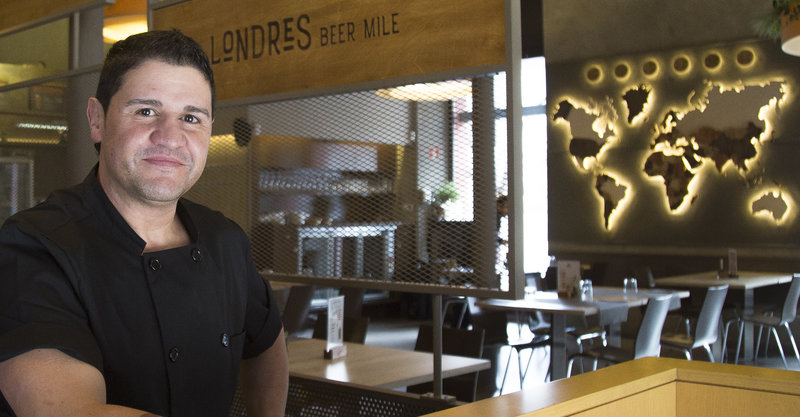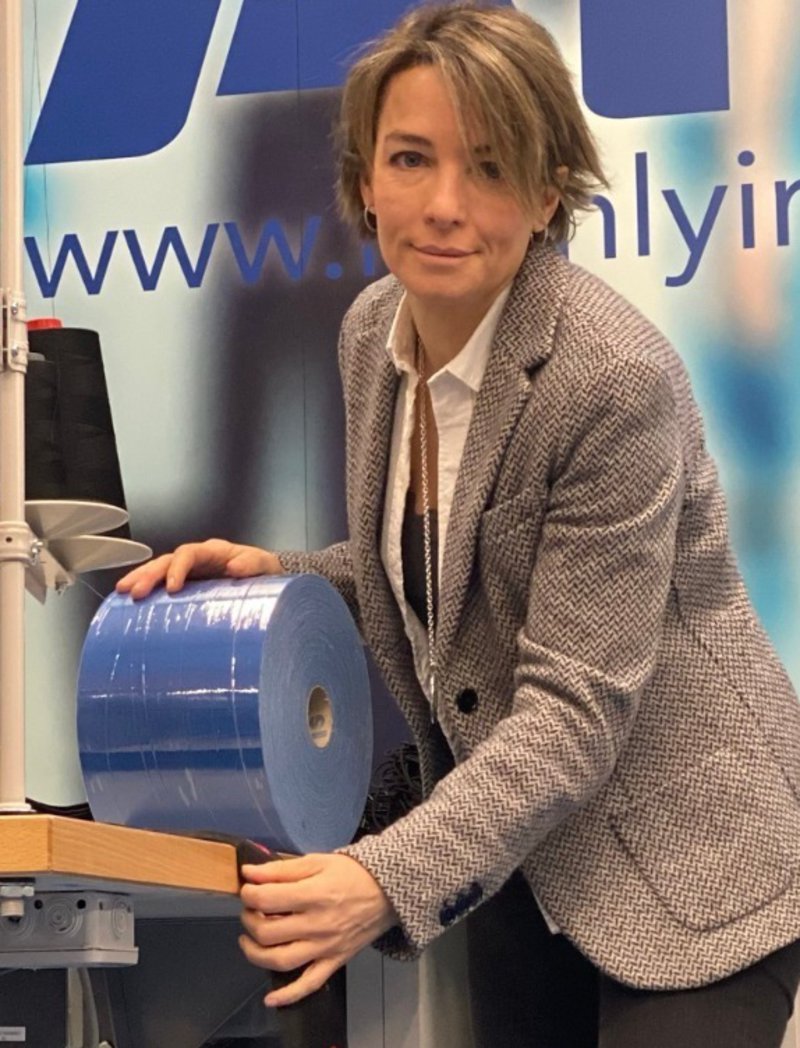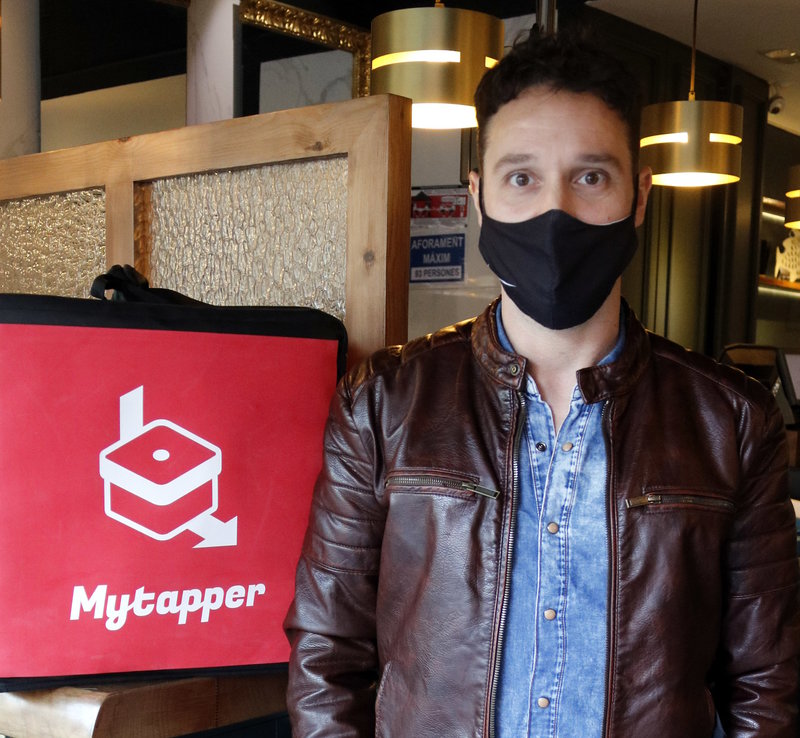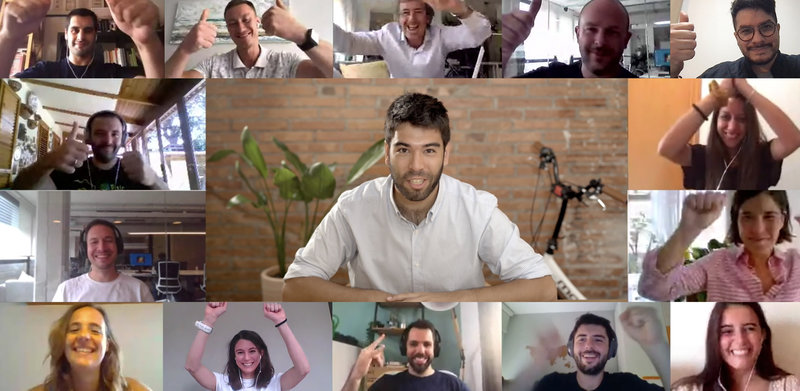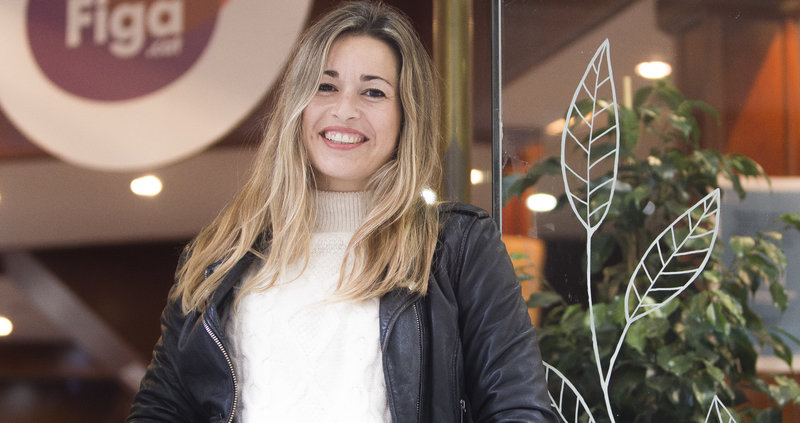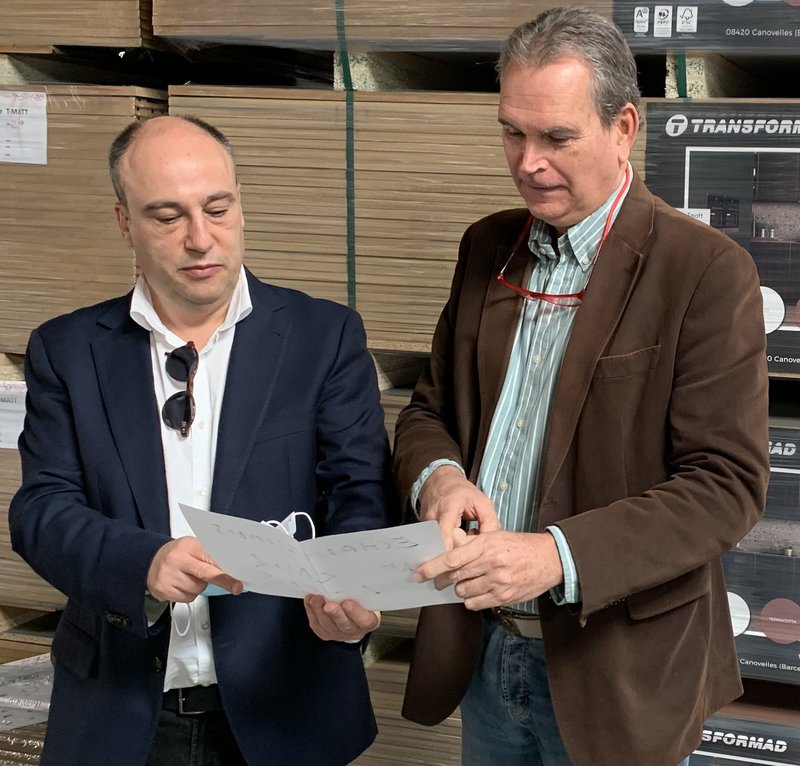Growing businesses: the other side of the health crisis
Many companies that have changed their businesses in response to the health crisis or that have opted for the online channel are selling more than before, while many exporting companies have opened up new markets
Businesses that have reinvented themselves and now make hydroalcoholic gel, fabric for face masks or disinfection equipment, companies that have increased exports using communication applications such as Meet and Zoom, and traditional shops and brands that have had no choice but to rely on the internet and that way have managed to grow their sales all reveal another side of the economic crisis caused by the Covid-19 pandemic.
The health crisis has led many businesses to fold, but there are others that have been able to successfully adapt to the new world we find ourselves in. Some have even benefited from the consequences of the pandemic. This is the case with FinTech (financial technology) companies and tech firms thanks to the digital revolution, which has accelerated processes that would otherwise have taken years. It is also the case with mental healthcare professionals, who now have more patients than ever suffering from anxiety disorders brought on by the crisis.
Oriol Brutau, president of the business organisation Nous Empresaris i Emprenedors de Catalunya, points out that the pandemic has greatly affected small businesses, but that “those who have been able to jump over the obstacles” have resisted and found a way to adapt to the new reality. Such is the case of one of the companies featured in the following pages, HandMade. When they had to close their shop that sold the traditional espadrilles they make known as espardenyes, the owners started doing online sessions in which they told their story to small groups, as well as customising their footwear and manufacturing them live online. They have now attracted many American clients and are about to reach 1,000 sessions.
The following examples also include entrepreneurs who have even opened new businesses in the midst of the pandemic, such as the team behind the Frambon chocolate brand, the feminist bookshop Ca la Figa in Manresa, and El Patrón restaurant in Terrassa.
Montse Basora, director of entrepreneurship at the economic development agency, Barcelona Activa, says that the businesses that are evolving best are those that “were already digitally positioned and sufficiently capitalised”. With regard to sectors, she highlights “those that directly or indirectly have to do with health and well-being, and also all those related to e-commerce.”
More distributed risk
Meanwhile, Cristina Serradell, the director of internationalisation for Catalonia’s business competitiveness agency, Acció, adds to the list of resistant companies those that are internationalised, as this means “they have the most diversified risk”. “It’s a real challenge because the crisis is a global one, but the contraction in demand is not the same everywhere: Asia, for example, is recovering faster,” she says. An example in the following pages is the company Transformad, which, despite the pandemic, has just sealed a deal with Kenya.
feature business
“We’ve billed three times more selling espardenyes online”
Since May, Luis Moreno and Katherinne Valencia have been working nights. Before the pandemic, their HandMade shop in Barcelona’s Gothic Quarter, was full of people looking for the traditional espadrilles and sandals known as ’espardenyes’ and ’avarques’. With the onset of the crisis, almost overnight they had to reinvent themselves. And they’ve done so successfully. They began making the footwear live, connected to customers on the other side of the Atlantic. In mid-February they held session number 1,000.
“Necessity is the mother of invention. We knew we had to sell online, but to stand out we had to offer something unique and so we thought about doing live sessions on Instagram,” says Moreno.
In two months they went from 1,000 followers to 12,000, and when Airbnb included them in its online catalogue of experiences, the idea took off: on Mother’s Day, they worked 18 hours straight telling the story of the espadrilles over the computer and making them live.
Moreno says that most of the customers are Americans who connect in small groups. “We do a little show and an interactive introduction to the history of ’espardenyes’. Then we let each customer choose the details they want, such as the height of the heel, the fabric colour and the type of stitching, and then we make a pair of the espadrilles live,” he says.
More recently, HandMade has been hired by large companies such as Facebook, Twitter and Pepsi to do sessions for their employees. “Because they can’t do business dinners, they give away experiences,” says Moreno. Despite their shop being closed, between October and January the company’s turnover was three times what it was last year.
HandMade has shown that any business, however traditional, can convert to an online format. Yet, Moreno admits that what they want most is to see their shop full of customers again.
“We saved the company by using our technology to create disinfection equipment”
E. Vila Projects applies infrared and ultraviolet energy to industry. Before the pandemic, this company in Sant Fruitós de Bages worked mainly for the automotive and aerospace sectors, which were hard hit by the crisis. The firm’s future hung in the balance and so it had to adapt to the new situation quickly. In March, when there was little protective equipment for the health sector, they patented a system for disinfecting masks and now, with Palm Robotics, they have developed the first ultraviolet robot made entirely in Catalonia. “The robot can recognise the space it needs to disinfect, such as a hospital floor or a school classroom,” explains Eugènia Vila, the company’s general manager.
E. Vila began working on solutions that would help fight coronavirus to add its grain of sand to overcoming the crisis. “Doctors became infected because they were wearing infected masks. We were able to quickly make a disinfectant machine that combined infrared and ultraviolet technology because we had been working in this field for many years,” says Vila. They quickly contacted the Eurecat technology centre to show that their systems “deactivate the Covid-19 virus both in the air and on surfaces,” she adds.
When the restrictions were eased, the firm began to focus on the needs of different sectors, beginning with hospitals and dental surgeries. It has now sold 1,800 items of disinfection equipment. Thanks to this turnaround, Vila says that they have been able to save the company. With the new production, their turnover has risen by 45%, to two million euros.
Yet, Vila regrets the lack of institutional help they have received, especially given that they help make environments much safer: “In the United States, millions have been poured into companies like ours because they consider it to be an investment in the common good,” she concludes.
“We managed to raise €30 million”
In June, three months after the health alert broke out, Ona Therapeutics managed to raise 30 million euros in investment. Thanks to this cash injection, they will now be able to complete the preclinical development of their biological drug for metastatic cancer and start initial trials on patients. Researchers Salvador Aznar-Benitah and Valerie Vanhooren, the founders of the company, explain that without this investment “it would have been very difficult to keep up with our development plans, which would have been very detrimental” to the group, as they had already been in operation for a year and had everything ready to go.
As Aznar-Benitah recalls, the pandemic caught them “in the middle of negotiations that had been going on for more than a year”, and although the company owners were initially afraid the project would not come to fruition, their investors – the Catalan funds Asabys Partners, Alta Life Sciences and Ysios Capital, the Belgian Fund+ and the French Bpifrance-Innobio 2 – reassured them that it would.
Ona Therapeutics was founded by Aznar-Benitah, Vanhooren, IRB Barcelona and Icrea in 2019. The drug they are developing is based on the results published by Aznar-Benitah in 2017, which show that the survival of metastatic cells depends on their intake of saturated fats and that, by blocking their ability to metabolise these fats, not only can metastasis be prevented, but existing metastatic cells can also be eliminated.
The project investors highlighted the potential of the new treatment for patients who have “extremely limited chances of recovery”. Currently, more than 90% of cancer deaths are caused by metastasis.
“I opened a new restaurant”
Emilio Esquivel has opened a new restaurant in the centre of Terrassa, El Patrón. “There are five of us and I made the contracts part-time to adapt to the restrictions,” he explains.
Esquivel had to close his previous restaurant, Mas Mimó in Vacarisses. “We were doing very well, but it was in the countryside, so with the lockdown it was impossible to keep it open,” he says, adding that there are now “good opportunities” to start new businesses due to low rental prices and available spaces.
“I finally have my own psychology clinic”
Mireia Forns has always dreamt of having her own clinic so that she can “work without pressure and offer a higher quality service”. She had worked in public health because she did not have enough clients to start her own project, but in recent months she has received many calls from people with anxiety due to Covid-19. Her new clinic is taking on two new clients a week.
She initially offered a free psychological help service with some colleagues, but it is now, after months of uncertainty, that the symptoms of anxiety and depression are emerging among health professionals and the general public.
“We have created a business unit for the healthcare sector”
The company Manly Interlinings, based in Parets del Vallès, has always made interlinings for the fashion sector – fabric that gives shape and consistency to clothing (for example, fabrics that strengthen the neck and cuffs of a shirt). With everything at a standstill and the shops mostly closed, this family business has had to reinvent itself, dedicating 50% of its production to the healthcare sector, as they now also make fabric for masks. They have so far manufactured more than 2 million metres of fabric, which equates to 80 million masks. Thanks to this ability to adapt quickly, they have managed to hit a turnover of more than 20 million euros, twice that of last year.
As CEO Laura Granada explains, the change required a lot of effort. “We have 25 workers and at first we had to lay people off temporarily, but we immediately started researching with the engineers and the quality department about what we could do with our stock, and we created a new business unit focused on healthcare.”
Granada acknowledges that this saved the company, even if it is not their main business. “The mask fabric business is declining now,” she says, because there’s been a lot of supply and “too little control, as a lot of fabric is not approved and doesn’t meet requirements.”
“25 restaurants are using the app”
As soon as lockdwn hit, computer engineer Marc Garcia began to develop an app so that the restaurants of Lleida could offer a home delivery service. The result is Mytapper, which currently receives some 300 orders a week. “Restaurants were in trouble because they either closed or had to use delivery platforms that charged them 30% commission. So I saw that here was an opportunity to help local gastronomy and trade and also a business opening,” the entrepreneur explains.
“We’ve almost quadrupled our funding goal"
Bnc10 is a Barcelona-based neobank that has been running since last March, when experts recommended not touching money or credit cards because they might be infected and it was not yet known how long the virus could survive on a surface. Mobile payment was an added feature to Bnc10’s existing product range, such as accounts, prepaid Mastercards, and currency exchange at no cost. In 2020, they saw customer numbers rise from 18,000 to 55,000.
As Albert Llorens, the CEO of this digital bank, explains: “There are always two sides to every coin: there are things that have been made more difficult by the coronavirus crisis, but the digital leap resulting from the pandemic has benefited us a lot.”
Bnc10 provides a range of basic services at no cost and applies a usage fee to more specific products.
“People’s response has been amazing”
In December, when it was clear that the health restrictions were affecting the culture sector, Aina Torné raised the shutters of the feminist bookstore, Ca la Figa. The shop in Manresa’s old quarter is the result of a trip Torné made to a “big” bookshop in Barcelona to look for books on education and gender. “I couldn’t find what I was looking for, and as I was moving to Bages, I guessed it would be even harder to find here.” She continued to think about it and during the lockdown she got the idea of setting up her own bookshop with her partner, Txema Egea. Nine months later, Ca la Figa opened and both women say they are very happy with the “amazing” response from people.
Torné explains why she decided to open the shop in the midst of a pandemic: “When people were questioning everything, we thought it was the right time, to strengthen the values of feminism.”
New opportunities
Agustín Barich and Francisco Rotta worked in the music business. But when the Covid crisis hit, they saw they needed a plan B. “We had always wanted to start a business, so we decided to make a product that is popular in our country, in Argentina: raspberries dipped in chocolate.” They spent five months working on the recipe and in September opened Frambons in Barcelona. “We’re happy because we’re getting a lot of business opportunities; after four months we are in more than 40 shops in Spain,” says Barich.
“We’ve opened new markets"
Transformad is based in Canovelles and employs 150 workers, making panels for surfaces, especially in kitchens. Foreign sales account for a large part of its business, and they have grown by 50% in the last year, even though, as the group’s director of international business development, Harm Mulder, points out, his last business trip was back in March. In fact, before the summer they managed to close an export deal to Kenya with the help of the Catalan government’s business development office in Nairobi. They sent two containers with material for more than 400 kitchens, and are now negotiating new orders.
The head of Transformad’s regional exports, Pablo Riverola, says all the arrangements were made by videoconference. “If it hadn’t been for the coronavirus crisis, it would have meant a week travelling around Kenya, but instead we had over 20 informal meetings on Whatsapp, because “in Africa personal and professional issues are mixed, and so they want to know things about you, from where you live to where you go on holiday,” he says.
Doing business in a pandemic is not easy, but as Mulder says, the problem is “global,” so the tools are the same for everyone. In fact, he points out that before it was hard to talk to the top people in a firm, but that this has changed with the crisis: “Before you would call and be told that the head you wanted to talk to was in a meeting, but that changed in March, when you had their personal mobile and they’d take the call right away,” he says.
Like other exporters that have diversified risk, overseas sales “have saved Transformad’s business,” says Mulder. The group will now take part in a sector fair in the US to be held in virtual format.


